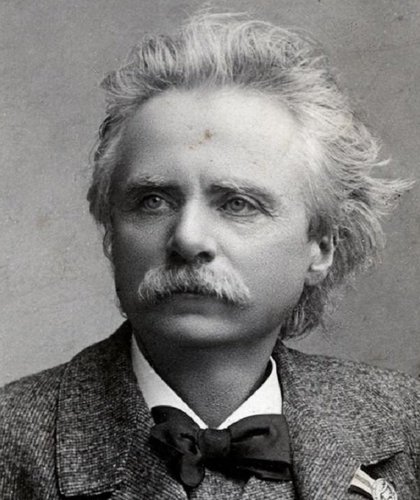
Edvard Grieg
The composer and pianist Edvard Hagerup Grieg (1843-1907) is the best-known figure in the history of Norwegian music. The son of a wealthy merchant, he had a carefree childhood. His mother started teaching him piano when he was six, and his exceptional musical talent showed very early, although at school he was less successful. At 15 he met the most famous Norwegian violinist and composer of the day, Ole Bull, who could see the young man’s talent. Thanks to that, the next year Grieg went on to continue his studies in Leipzig, the great music centre of the age. He would return from there in 1862. After giving concerts in his home town of Bergen, he moved to Copenhagen where he met the North’s foremost composers, among them Rikart Nordraak with whom he shared his enthusiasm for everything Norwegian. The fruit of their labour was Euterpe, the music institute which he, Nordraak and other composers founded to develop Scandinavian music. Grieg wanted to express the Norwegian spirit in his music, yet he still travelled for a long time in Europe. When he returned to Norway, he settled in Oslo. He founded the Norwegian Academy of Music in 1867, and became director of the Philharmonic Society. His most famous composition is his stage music to Ibsen’s drama Peer Gynt, which he composed on a commission the playwright gave him in 1874, and finished it in 1876. During the second half of the 1870s Grieg was already a composer celebrated throughout Europe, and he toured regularly. He was decorated with honorary doctorates and academy memberships from Cambridge, Oxford and France for his artistic merit, but he considered himself first and foremost a Norwegian composer. It was in this spirit that he organised the first Norwegian music festival in Bergen in 1898. Besides the incidental music to Peer Gynt and the two suite adaptations of it, other pinnacles of his oeuvre include his piano concerto and his many works for solo piano.